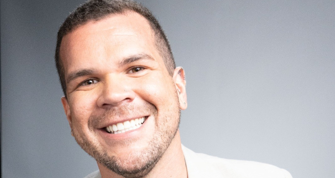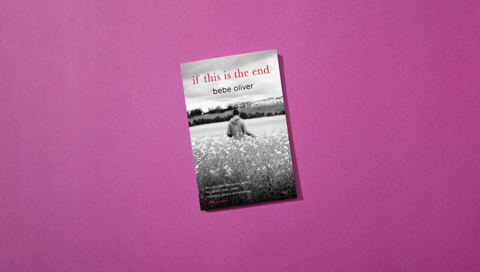Explore upcoming events

Festival month has arrived! But before the Festival officially kicks off, we want to introduce you to some of the participants who have travelled from near and far to discuss their books, writing and ideas with us. Throughout this Q&A series, get to know favourite and unfamiliar writers and consider the 2025 theme, In This Together.
Bebe Oliver is a Bardi Jawi award-winning author, poet and Artistic Director and CEO of Blak & Bright, Australia's leading organisation dedicated to elevating First Nations voices.
if this is the end is your sophomore poetry work, how has your creative process evolved since your debut?
I really appreciate the part of me that refuses to creatively settle, and to keep exploring and expanding. If I stay open to learning and evolving, my voice will always evolve with me. When I wrote more than these bones, I was a particular person, somewhat fractured and on the verge of fire. But when I began if this is the end, I felt completely renewed in my energy, my perspectives and what I wanted to say. Maintaining freedom in my writing is vital and keeps what I create almost enigmatic to my own thoughts.
You’re a vocal advocate for emerging writers, how important is supporting the next generation of artists to you?
Every writer began as an early-career voice, with a desire to continue sharing their stories, hoping they might mean something to someone. What we’re brave enough to write and what we’re lucky enough to have published becomes part of the legacy we leave behind. I see the vast talent and unique perspectives that younger writers possess, shaped by the communities they’ve grown up in and the experiences they’ve witnessed.
We need to invest more in the voices that haven’t had the same opportunities as established writers. They’re the future of our industry, and that should matter to everyone.
What’s on your TBR pile now?
At the top of my TBR pile is Dying Rose by Douglas Smith, Kathryn Bermingham, Emily Olle and Gemma Jones. It exposes the systemic racism and police neglect behind the deaths of six Aboriginal women in Australia, beginning with 19-year-old Rose Hunter-Hebberman. Her mother’s refusal to accept the official narrative sparked a major probe, and the book uncovers a disturbing pattern of indifference, failed investigations and a justice system that repeatedly fails Blak women. Rose’s mother said, “If you think it’s hard being a white woman in Australia, try being a Blak woman,” and I don’t need to say anything more.
What is the first book you remember reading?
I don’t remember the first book I read, but I do remember the first book I fell in love with, which was Tomorrow, When the War Began by John Marsden. It felt like my own life, growing up in a small bush town, running wild with friends, thinking we were fearless. The story speaks to the bond, strength and need to protect what you love, while begging you to impossibly think about what you’d do if everything you knew was ripped away. Being pulled into a world that was torn apart by invasion felt strangely familiar, too.
What book do you wish you could read for the first time again?
I remember reading Holding the Man by Timothy Conigrave for the first time in high school. I hadn’t figured out my own sexual identity yet, but the intensity of emotion running through that book hit me hard. His confidence, John’s innocence and their deep love. The weight of the AIDS epidemic, the heartbreak and the death. It opened up a different kind of love story for me, one that was more honest and relevant. The memory of reading it is connected directly to who I was back then, and I know that if I were to read it again now, it wouldn’t be the same. Still beautiful, just different.
What events at this year’s Festival are you looking forward to attending?
I’m excited to attend the 2025 Griffin Award and Keynote because of the wisdom that Leah Purcell carries, and the opportunity to witness the work of the next wave of playwrights. I’m also looking forward to Past and Future of Indigenous Recognition with Thomas Mayo and Claire Wright. They each have important lessons that everyone needs to hear. I’d love to go and listen to Gina Chick yarn about her life and her new memoir We Are the Stars, but it clashes with one of my own events. Gina and I are appearing together at an event in June, and I adore her journey, so there’ll be another chance.
What do you hope readers take away from your work?
I always find questions like this quite difficult to answer. I write to honour my ancestors, to speak to my communities, and to challenge the narratives that have been imposed on us. I write because Blak stories matter. My work is intimate and vulnerable, so I want readers to feel like they've been cracked open and stitched back together. I want them to feel seen, especially if they’ve ever felt invisible. I suppose, for me at least, my writing is both a mirror and a torch. It reflects the complexities of my Blak and queer existence and lights the way through the grief, love, identity and survival. If you read my words, I hope you feel the pulse of Country, the ache of loss, the joy of connection and the burn of resistance. I hope you carry that with you and let it change the way you see the world.
